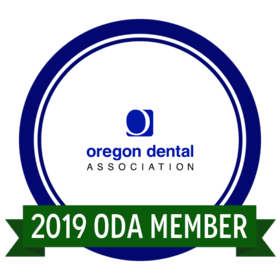FAQs
Forms:
What is a medical history?
Medical History can also be referred to as a health history update or paperwork update.
The medical history paperwork includes patient information such as address and phone numbers, place of employment, emergency contact, and your personal medical history (both medical and dental). Although dental personnel primary treat the area in and around the mouth, your mouth is part of your entire body. Health problems that you may have, or medications that you may be taking, can have an effect with the dentistry you will receive. It is important that our office has all past and present medical information before we treat each patient.
Why do I need to update my medical history at every visit?
We only require medical history updates once a year. This update ensures that our office has all information entered correctly and that nothing has changed in the last year.
What if nothing has changed since my last medical history?
It is still required that you review the information to be sure that nothing has changed. All medical offices require that medical history be updated at least once a year and most offices require an update at every visit.
What is a HIPAA form?
HIPAA stands for Health Insurance Portability and Accountability Act. A major goal of the Privacy Rule is to assure that individuals’ health information is properly protected while allowing the flow of health information needed to provide and promote high quality health care and to protect the public’s health and well being. It enables patients to find out how their information may be used, and about certain disclosures of their information that have been made. It generally limits release of information to the minimum reasonably needed for the purpose of the disclosure. It generally gives patients the right to examine and obtain a copy of their own health records and request corrections. You are not required to sign the HIPAA form but this does not mean that your information can’t be shared for purposes such as but not limited to referrals, record transfers, insurance, and coordination of treatment with another healthcare provider.
New Patients:
Are you taking new patients?
Yes
Do I need to have my records transferred?
Having x-rays transferred from previous office can help save out of pocket cost if insurance won’t cover new ones. This is dependent upon the previous x-rays being of good diagnostic quality.
Do I need to arrive early for my first appointment?
Yes. Please arrive 10-15 minutes early to fill out any remaining patient forms.
What should I do if I require premedication?
Please be sure to request a prescription prior to your appointment, or if you are unsure, contact us and we can help.
What do I need to bring to my first appointment?
Please bring the following items with you to your appointment:
- Patient Information Form
- Dental Insurance Card (if applicable)
- Identification such as Driver’s License, Military ID or State ID
- Patient Health History Form
- HIPAA Consent Form
- Patient Authorization Form
How long will my first appointment last?
It varies, but please plan on 1 to 1.5 hours for the first visit
Will I get a cleaning this first New Patient visit?
At your first appointment, you will be established as a patient at Johnston Dental Care. We will be doing a comprehensive exam, updating all x-rays, and a hygiene evaluation so that we know what type of cleaning you’ll need here in our office.
Prevention:
How often should I floss?
Flossing of the teeth once per day helps to prevent cavities from forming between the teeth where your toothbrush can’t reach. Flossing also helps to keep your gums healthy.
Which type of toothbrush should I use?
The brand of the toothbrush is not as critical as the type of bristle and the size of the head. A soft toothbrush with a small head is recommended because medium and hard brushes tend to cause irritation and contribute to recession of the gums, and a small head allows you to get around each tooth more completely and is less likely to injure your gums. It’s unnecessary to “scrub” the teeth as long as you are brushing at least twice a day and visiting your dentist at least twice a year for cleanings.
Is one toothpaste better than others?
Generally, no. However, it’s advisable to use a fluoride containing toothpaste to decrease the incidence of dental decay. We recommend our patients use what tastes good to them as long as it contains fluoride.
What is fluoride and why is it important to dental health?
Fluoride is a mineral that occurs naturally in many foods and in water. Some natural sources of fluoride are brewed tea, canned fish, cooked kale and spinach, apples, and skim milk. Some city water contains fluoride, so by drinking tap water you will acquire fluoride. If drinking water does not have fluoride, supplements are available.
What are cavity-fighting sealants?
The American Dental Association cites sealants as an effective weapon in the arsenal against tooth decay. Sealants are a thin coating painted on chewing surfaces of molars and premolars. Dental sealants act as a barrier, protecting your teeth against decay-causing bacteria
What is periodontal disease?
Periodontal disease is inflammation and infection of the gums and supporting bone structure, which if left untreated, can cause permanent jaw bone destruction and possible tooth loss. Untreated periodontal disease has been linked to increased risk for conditions such as heart disease, stroke, low birth weight babies, pre-term delivery, respiratory disease, and prostate cancer. An advanced stage of periodontal disease exhibits inflamed gums pulling away from your bone and teeth. Other signs of periodontal disease include:
- Bad breath
- Red or swollen gums
- Loose teeth or teeth that have moved
- Sensitive teeth
- Pus coming from around the teeth
- Pain when chewing
- Tender gums
- Bleeding gums
Treatment of early periodontal disease can be performed in-office. However, advanced stages may require surgery. Periodontal disease can be prevented and treated successfully by seeing your dentist and dental hygienist regularly and following recommended care plans
Procedures:
What’s the difference between a “crown” and a “cap”?
These are restorations to repair a severely broken tooth by covering all or most of the tooth after removing old fillings, fractured tooth structure, and all decay. The restoration material is made of gold, porcelain, composites, or even stainless steel. Dentists refer to all of these restorations as “crowns”. However, patients often refer to the tooth-colored ones as “caps” and the gold or stainless steel ones as “crowns”.
What’s the difference between a “bridge” and a “partial denture”?
Both bridges and partial dentures replace missing teeth. A bridge is permanently attached to abutment teeth or, in some cases, implants. A partial denture is attached by clasps to the teeth and is easily removed by the patient. Patients are usually more satisfied with bridges than with partial dentures.
Do I need to have a root canal just because I have to have a crown?
No. While most teeth which have had root canal treatments do need crowns to strengthen the teeth and to return the teeth to normal form and function, not every tooth needing a crown also needs to have a root canal
What's the best way to contact the office?
Give us a call at 541-479-6623 Email: reception@johnstondentalcare.comOFFICE HOURS – Monday to Thursday: 8:00 am – 5:00 pm. Saturday & Sunday: CLOSED. Look for us on Facebook and Instagram.
Contact Info
Johnston Dental Care
1825 NW Hawthorne Ave.
Grants Pass, OR 97526
reception@johnstondentalcare.com
541-479-6623
Office Hours
Monday-Thursday
8:00am - 5:00pm
Sunday & Saturday
Closed








